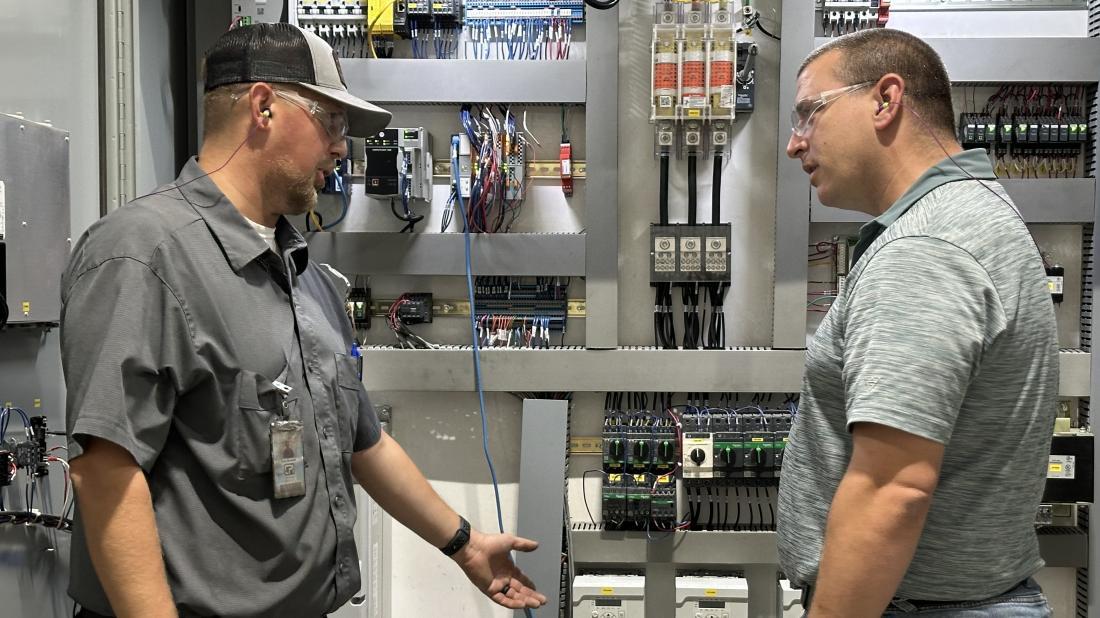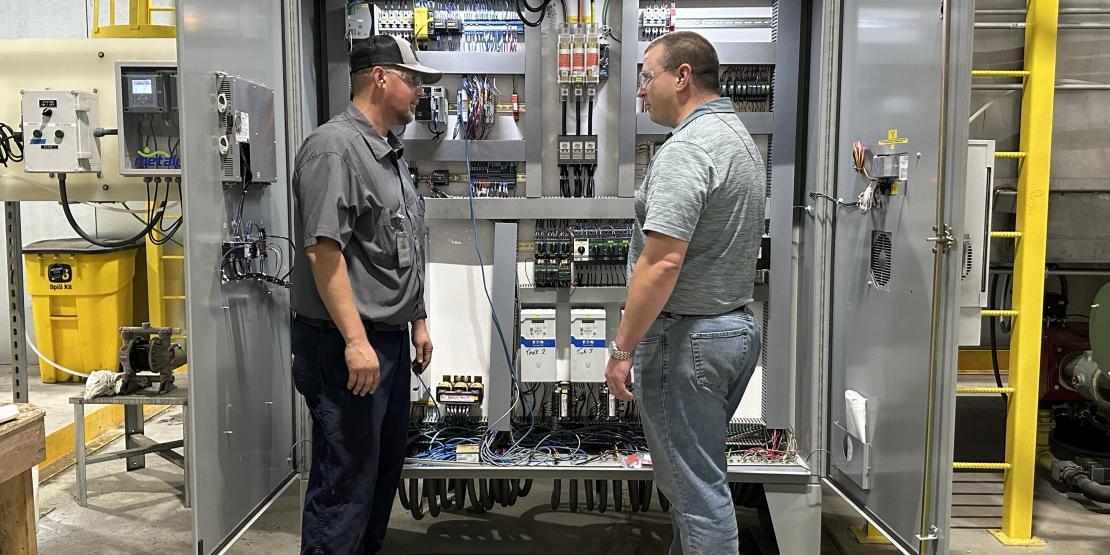The Craven County Apprentice Program (CCAP), an innovative initiative at Craven Community College (Craven CC), has transformed workforce readiness by bridging the gap between education and employment. Launched in 2018 with a significant $200,000 investment from Duke Energy, this program covers the costs of tuition, fees, and books for students pursuing careers in manufacturing.
Funds were also used to purchase an AC/DC training system, located in the Bosch Advanced Manufacturing Center on Craven’s New Bern campus. This system is used to train students in the Industrial Systems, Mechatronics Engineering, and Manufacturing Technology programs.
Matthew Berg, Dean of Career & Technical Programs at Craven, highlighted the immediate benefits for students enrolled in CCAP.
"Being employed while going to school and getting paid while they're in classes is exciting,” he said. “When the students complete their apprenticeship program, they are already a seasoned employee, and the company has committed to them and their future."
For Cody Marshall, one of the first students to complete the apprenticeship, the program provided an opportunity to further his education despite being a working parent with limited time.
"When I started the program, my daughter was three years old,” he said. “I was working a lot of hours. College just did not seem like a possibility, and the apprenticeship program did just that—it gave me an opportunity to further my education and better myself."
Marshall, now a senior maintenance mechanic at Chatsworth, also noted the program's positive impact on his career path, including the opportunity to pursue several trainings and certifications. He recently became certified in Programmable Logic Controller (PLC) programming, which allows him to use a computer to automate processes of industrial machinery. He also returned to Craven in fall 2023 to teach a class in blueprint reading.

“Overall, just my time at Craven kind of made me fall back in love with school and inspired me to keep it going,” he said. “I'm actually taking classes at ECU currently to try to keep further and keep going."
Businesses partnering with Craven CC on the CCAP initiative have also reaped significant rewards. Stephen Calabro, maintenance manager at Chatsworth Products in New Bern, oversaw the apprenticeship program at their location. He explained that motivation for their involvement hinged on finding students who had the drive to learn, succeed, and be part of a long-term commitment to the company.
"The students that come in, we know that they're already going to be qualified,” he said. “We know that upon the completion of this program, they've already had on-the-job experience and work-school experience. So, it really helps us to know that not only is that student going to be successful here on the job, but also that they have the soft skills: showing up on time, doing what they're asked to do, working in a professional environment.”
Calabro, who has been at Chatsworth for 10 years, saw their maintenance department jump from two to six employees over the course of the apprenticeship. He hopes to continue that growth as the company expands. Given the success of CCAP, they plan to continue training future employees in the same way.
Dr. Gery Boucher, Craven CC Vice President for Development, further emphasized the reciprocal benefits, noting that businesses are left with highly trained individuals that have hands-on, personalized knowledge and experience to get the job done. Boucher explained Craven CC’s crucial role by utilizing its expert instructors to deliver high-quality training and cultivate a robust workforce pipeline.
"Forty-eight students had an opportunity to get a scholarship to go into a program, to learn a skill, to learn a trade, to get a job. Another 28 had an opportunity to get an associate degree or a certificate or diploma and to work with a company while they're going to school and get paid while going to school."
The success of CCAP aptly illustrates the power of hands-on training, comprehensive support, and practical career preparation. This impactful program would not have been possible without the vital support from the Duke Energy Foundation and the willingness of community partners such as Chatsworth.
"Without the Duke Energy Foundation grant, there is no way this could have happened,” added Boucher. “We really appreciate this, the students appreciate this, and the businesses and industry appreciate this, because it truly has made an impact in our community."
About Duke Energy Foundation

The Duke Energy Foundation provides philanthropic support to address the needs of the communities where its customers live and work. The foundation provides more than $30 million annually in charitable gifts. The foundation’s education focus spans kindergarten to career, particularly science, technology, engineering and math (STEM), early childhood literacy and workforce development. It also supports the environment and community impact initiatives, including arts and culture. Duke Energy employees and retirees actively contribute to their communities as volunteers and leaders at a wide variety of nonprofit organizations. Duke Energy is committed to building on its legacy of community service. For more information, visit https://www.duke-energy.com/community/duke-energy-foundation.
